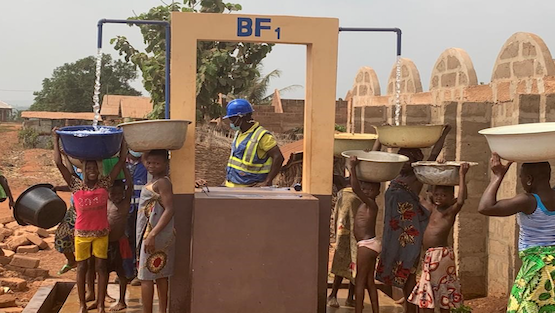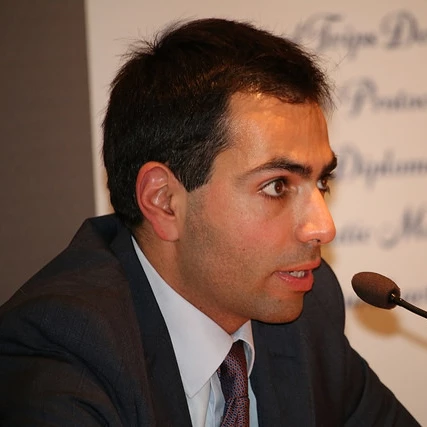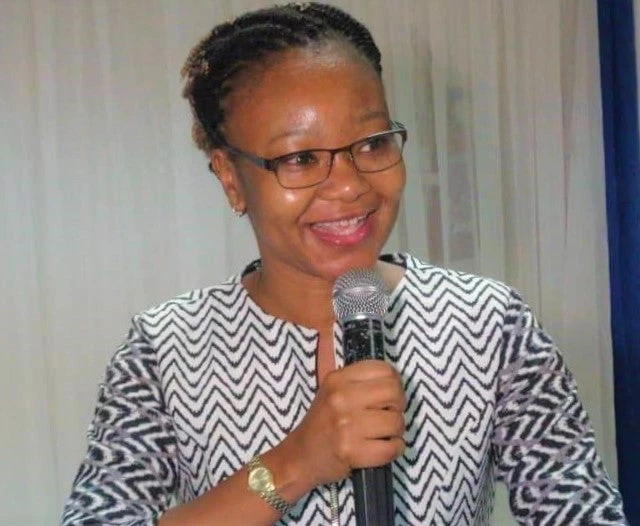 Photo credit: Yeli Mariam Dakoure Sou
Photo credit: Yeli Mariam Dakoure Sou
Global Water Security and Sanitation Partnership* supports Benin’s efforts to expand access to water and overcome the gender gap.
Water and sanitation have a direct bearing on human health and economic development in Benin. With a per capita GDP of $1291, this West African nation is working towards economic diversification and more inclusive growth to reduce poverty rates.
Four out of 10 rural households lack basic access to water services. The OECD estimates that one-fifth of the country’s death and disease burden is related to water, sanitation, and hygiene. Widespread diarrhea and dysentery contribute to a high level of infant mortality, which was estimated at 59 per 1,000 live births in 2019.
Political will to tackle these challenges is evident. Benin’s National Water Strategy established the Rural Water Supply National Agency and pledged $400 million to expand rural water coverage to an additional 2.5 million people. Yet fulfilling the promise of this ambitious strategy requires a comprehensive package of reforms and greater government capacity.
To improve service efficiency and quality, Benin’s government has since 2007 encouraged municipalities to assign water service delivery to private operators through small-scale affermages. By 2017, more than half of the rural water supply was under this system. Yet municipalities did not have the capacity to mobilize the required funding for investments, to design and manage contracts, and there were relatively few professional water operators in rural areas. Therefore, after the creation of the Rural Water Supply National Agency in 2017, a new rural water supply service management model - regional affermage - was at the heart of the government’s strategy for sustainable and quality service delivery. Strong political will and GWSP’s support are helping the government to tackle two priorities: strengthening private sector engagement in the water sector, and capacity building for a new generation of workforce.
“The Government of Benin is committed to turning the fundamental need to access water supply services into a right, thanks to the support that the World Bank and GWSP have provided to undertake the needed reforms to make this happen.” Abdoulaye Bio Tchane, minister of State in charge of planning and development.
To promote sustainable service delivery in rural areas, the GWSP funded technical assistance to the government for the preparation and development of bidding documents for a 10-year private contract with three regional water operators to rehabilitate and manage water systems through regional affermages involving international operators. With technical support from GWSP, the Rural Water Supply National Agency also led the process of preparing guidelines to address environmental and social impacts of the regional affermages.
This support has enabled a more tailored approach to private-sector participation, while ensuring that local authorities were fully engaged throughout the process. The bidding process was faster and more efficient than previous efforts.
GWSP also funded a study of human resource requirements in rural water services to build the capacity of the next workforce generation in the sector. The results of this study led to the development of a capacity-building strategy and training courses for new network operators and technicians. It also prepared an investment plan for a water training center that will be developed in coordination with established training institutes to support young professionals who are entering the rural water sector.
World Bank research has highlighted that in 9 out of 10 rural households in Benin, women and girls carry the burden of water collection. In response, the GWSP conducted a gender gap assessment that informed policy makers and influenced the design of World Bank operations. As indicated by recent research1, supporting investments in water-delivery infrastructure would free up time in the daily lives of women and girls, while promoting economic growth and food security.
The GWSP also supported the design and implementation of a toolbox for water users associations (Association des Consommateurs d’Eau Potable (ACEP) in French). The toolbox contained several modules on the organization, functioning and financing of the ACEP, and helped enhance social inclusion in service delivery. The toolbox focused on the practical tools for setting up and training the ACEP, as well as policies and measures that create the right conditions to achieve the sustainability of these associations.
On the sustainability side, the GWSP supported a study of the impact of rural water supply systems on groundwater abstractions to improve knowledge on groundwater availability and recharge zones. The study contributed to an increase in knowledge of the groundwater resources especially in hydrogeological difficult areas, and helped create a mechanism to monitor the impact of water withdrawals from aquifers.
GWSP’s support complemented and influenced two World Bank operations. The first operation was the Rural Water Supply Universal Access Program (AQUA-VIE), the aim of which was to construct and rehabilitate rural piped water supply systems for the benefit of 1.6 million people. The second initiative – the Small Town Water Supply and Urban Septage Management Project (PREPAU) – focused on improving water access for selected small towns and safe fecal sludge disposal in the greater Cotonou area.
GWSP’s work in Benin has revealed the importance of focused technical assistance in the rural water sector, that government buy-in is crucial for getting positive results , and that the consideration of gender and other social issues has a great impact on infrastructure projects.
1The GWSP is a multi-donor fund within the World Bank that produces cutting-edge research and analytics to create and deliver urgent, practical, and innovative solutions.




Join the Conversation